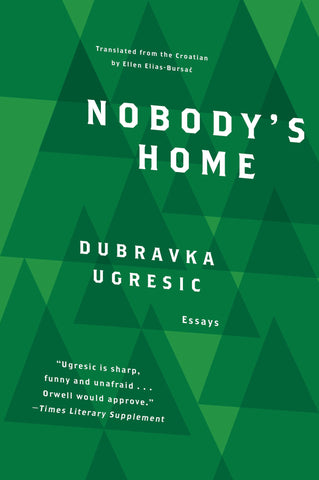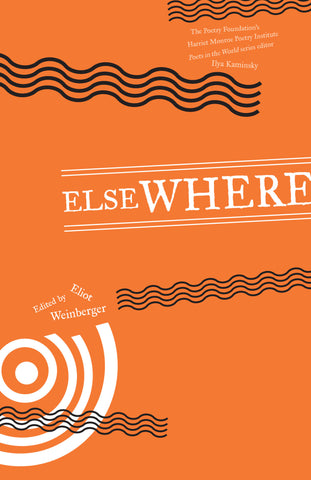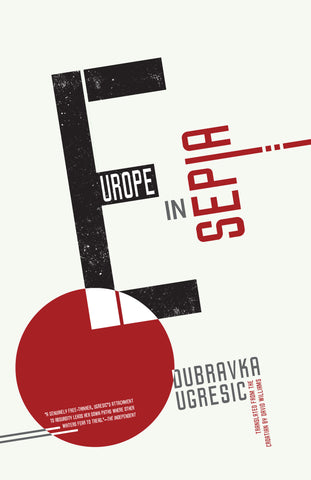Nobody's Home
$16.95
September 15, 2008
essays | hc | 297 pgs
5.5" x 8.5"
978-1-934824-00-9
"Ugresic is sharp, funny and unafraid. . . . Orwell would approve."
—Times Literary Supplement
"Every day and age has its rules. Currently, good behavior dictates that we be politically correct, evade conflicts, espouse tolerance, and make no hasty judgments. To be judgmental is viewed as one of the most reprehensible human traits. People are likely to think today that an optimist is a good person, while a pessimist is the lowest of the low. Picking your nose in public is more forgivable then being pessimistic. [. . .] We live in a time that urges us to behave as if we are in paradise. Yet the world we live in is no paradise. This book breaks the rules of good behavior, because it bickers."
This series of thought-provoking and incisive essays from Dubravka Ugresic explores the full spectrum of human existence. From life in exile to life in prison, from bottled-water drinking tourists with massive backpacks to the Eurovision song contest, Ugresic's unfailingly sharp critical eye never fails to reveal what has been hidden in plain sight by routine, or uncover the tragic, and the comic, in the everyday.
Translated from the Croatian by Ellen Elias-Bursac
•
About the Author: Dubravka Ugresic is the author of several works of fiction, including The Museum of Unconditional Surrender and The Ministry of Pain, and several essay collections, including Europe in Sepia and Karaoke Culture. In 1991, when war broke out in the former Yugoslavia, Ugresic took a firm anti-nationalistic stand and was proclaimed a "traitor," a "public enemy," and a "witch," and was exposed to harsh and persistent media harassment. As a result, she left Croatia in 1993 and currently lives in Amsterdam. In 2016, she was awarded the Neustadt International Prize for Literature for her body of work.
•
"This book is part memoir, part shrewd observation, part travel writing at its best. Each section opens with a loving quotation from the Russian satirists Ilf and Petrov, and Ugresic writes with something of their impish genius."
—Telegraph





